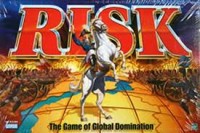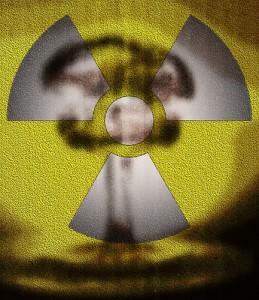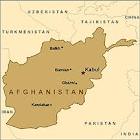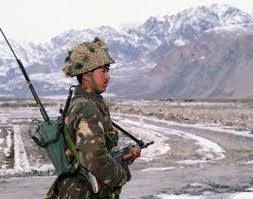
The story of how a little girl from Swat became a rallying point against the Taliban
In January 2009, Pakistan’s Swat valley was fully under the control of a Taliban affiliate, Tehrik-e-Nifaz-e-Shariat-e-Muhammadi(TNSM), and its leader Sufi Muhammad had issued a decree banning female education in the area. Only a handful of schools there had escaped the Taliban’s destructive wrath. While fear gripped the entire valley, Malala Yousafzai, an eleven years old girl from Swat’s Mingora town, began telling the world her innocent tales of surviving the Taliban’s ban on education.

The Best Defence is Dialogue
The recent visit to Beijing by the U.S. secretary of defense, Leon Panetta — which coincided with State Department statements that the U.S.-Japan security treaty would apply to the disputed Senkaku Islands — highlights the growing tension with China over America’s military presence in Asia, Chinese efforts to counteract it, and the dangerous misperceptions that can arise if defense strategy gets in the way of diplomacy.

International Conflicts: What is the difference between risk and uncertainty?
To answer this question, I’ll begin with a few basic statements. Risk is tangible; uncertainty is not. One can define risk, but one can barely delineate the outer layers of uncertainty. Risk can be rendered concrete; uncertainty cannot.

The Loneliness of a Moderate Muslim
I am a Muslim and I condemn the rampant and widespread violent protests over a badly made anti-Islamic film. I believe one needs to have a very high bar when it comes to getting offended. If everything is offensive to you, then it is perceived that something is wrong with you. The Indian government proved it recently with its tantrum against cartoonist Aseem Trivedi’s mediocre caricatures. Now a section of radical Muslims is proving it over an insignificant film. I saw “Innocence of Muslims” a couple of days ago on YouTube. It is a laughable attempt at insulting Muslims and sooner rather than later would have met its fate at the hands of a Ricky Gervais or a Jay Leno. …

Iran and the Threat of Nuclear Weapons: A response to Kenneth Waltz
In a recent interview with The Diplomat, Professor Kenneth Waltz discussed the advantages of Iran acquiring nuclear weapons. An eminent and lucid scholar, Waltz committed the error of trying to fit an incorrect piece of a puzzle into a coherent theory. His theory whereby nuclear powers have never gone to war against each other has, so far, proven to be right. However, trying to extend this fact in a mechanical manner into a future scenario involving Iran is questionable. To begin with, the leadership of Iran, as distinct from that of any other of the current nuclear powers, has called for the destruction of its enemy as a sovereign entity. It has made it clear, time and again, that …

Discontent in Paradise: Protests in Hong Kong
This weekend, Hong Kong, the newly declared “best city in the world”, celebrated the 15th anniversary of its return to China, and swore in its new leader, Beijing-backed Leung Chun-ying, the third Hong Kong Premier since its re-joining of the mainland. However, events that took place on Saturday and Sunday have indicated that the public mood within Hong Kong is far from universally jubilant. While the official media has been full to the brim of Chinese nationalism-oriented elation, on the Saturday evening many residents of Hong Kong displayed their increasing anger with the actions and dictates of the parent state by protesting outside of the Convention centre where Hu Jintao was due to inaugurate Leung. Protests continued throughout the Saturday …

Promise and peril of NATO’s ‘irreversible’ exit from Afghanistan
With the military campaign in Afghanistan in the middle of its eleventh year, NATO has firmly moved from what is idealistically desirable to what is realistically achievable in the war-torn country. Over a decade ago, NATO intervened in Afghanistan with post-Cold War ambition. But the experience in Afghanistan, where the battle with Taliban-led insurgents is far from over, has put many off protracted peacekeeping missions. The US, who went into Afghanistan with a neoconservative mission of turning a tribal system upside down, is finally settling for an imperfect yet “responsible end” to a prolonged, unpopular, costly and deadly war. At the recently-held summit in Chicago, NATO leaders announced an “irreversible” three-stage security transition plan. Under the plan, Afghan National Security Forces …

Madness over the Himalayas: Time to demilitarise the Siachen Glacier
For nearly three decades, India and Pakistan have engaged in a maddening conflict over Siachen Glacier in the Himalyan peaks of the disputed Kashmir region. The “world’s highest battlefield” has claimed thousands of lives due to hostile weather conditions—frostbite, avalanches and blizzards—along with over a hundred soldiers killed in sporadic combat until 2003, when the two countries agreed to a ceasefire across the Line of Control in Kashmir. The weather’s latest victims are 139 Pakistani soldiers who were buried deep in snow after an avalanche hit their Gyari battalion headquarters on April 7. Since then, the worsening weather has prevented the rescuers to gain access even to their dead bodies. Sustaining a conflict for so long at an altitude of …









